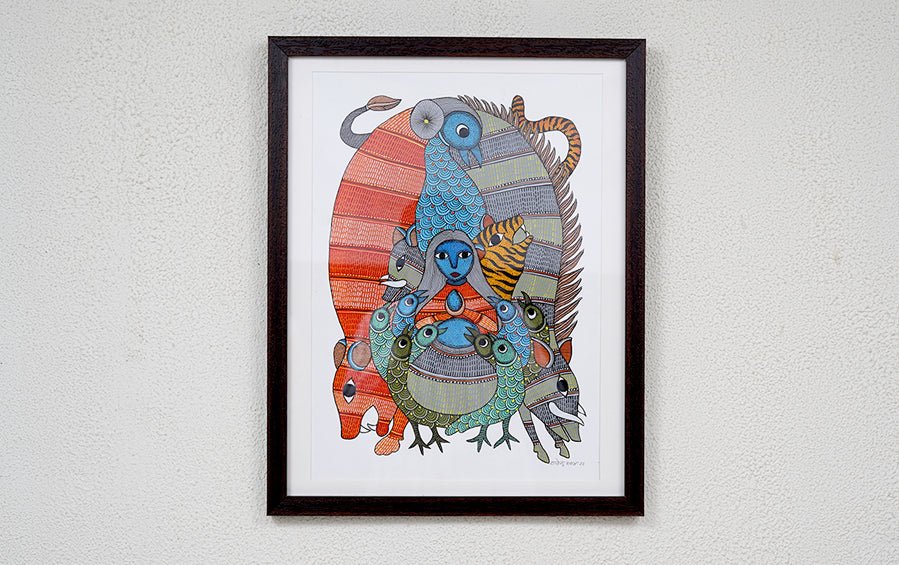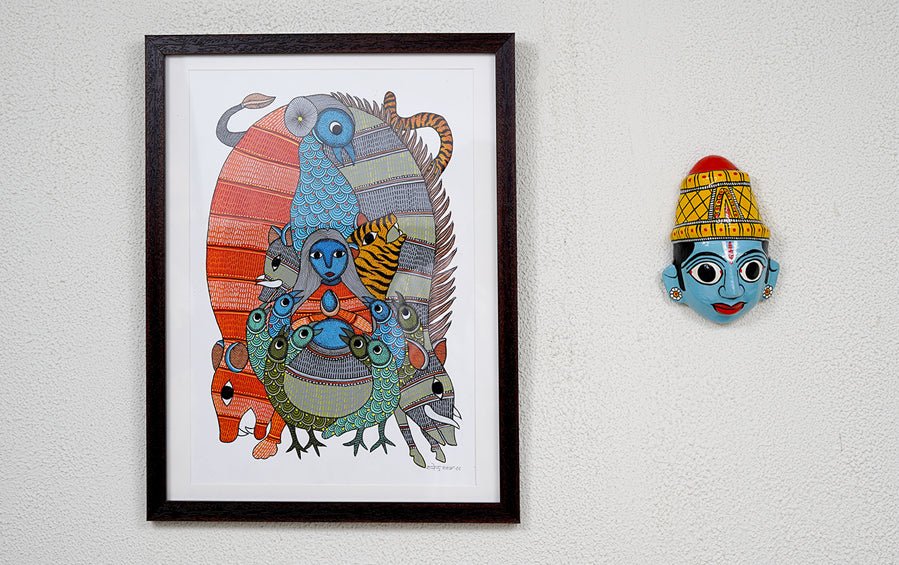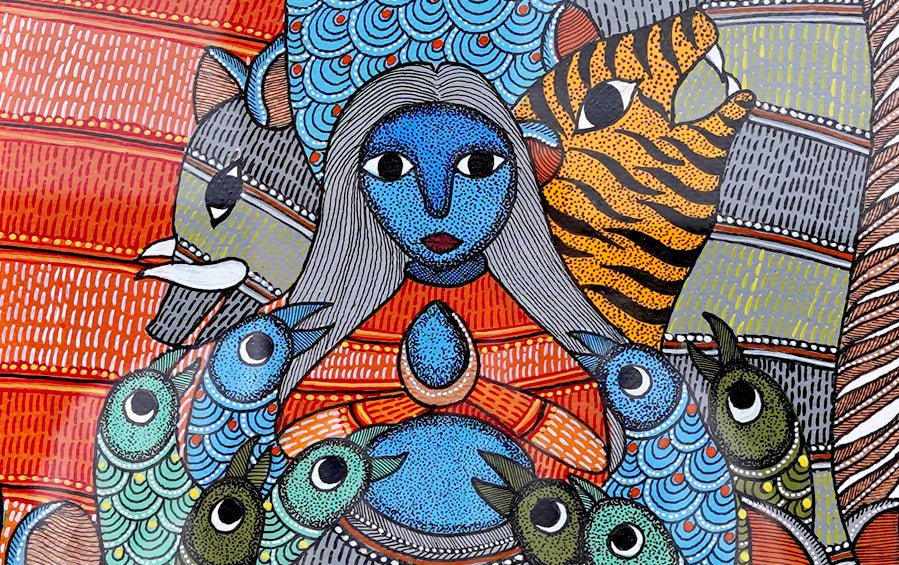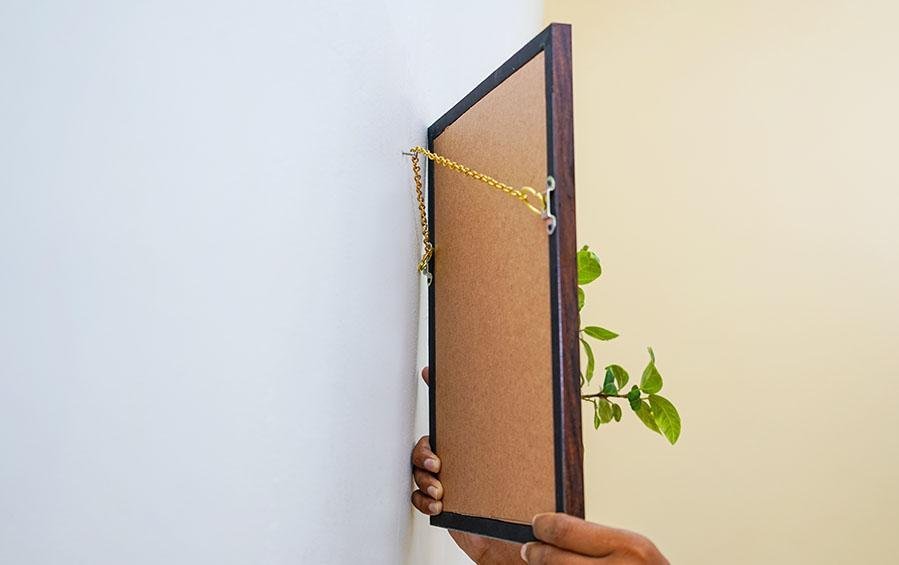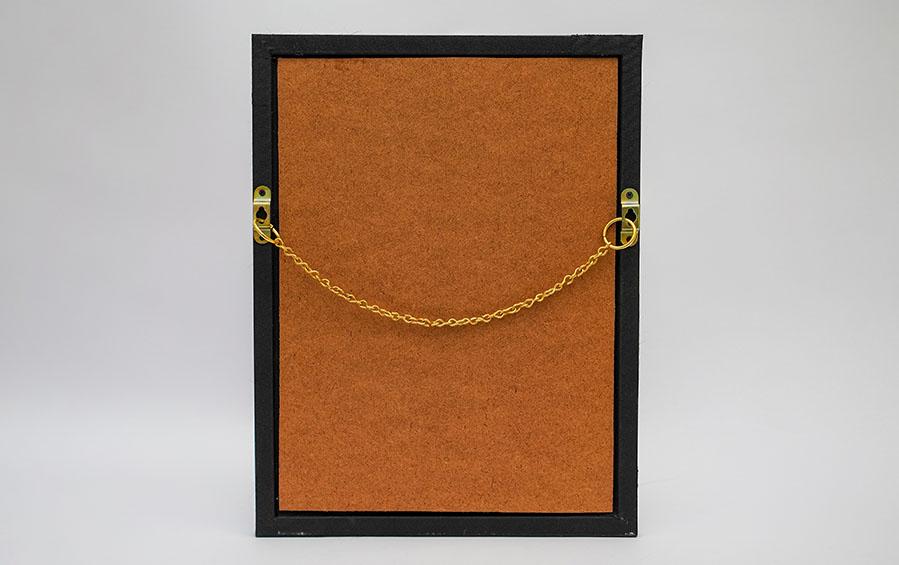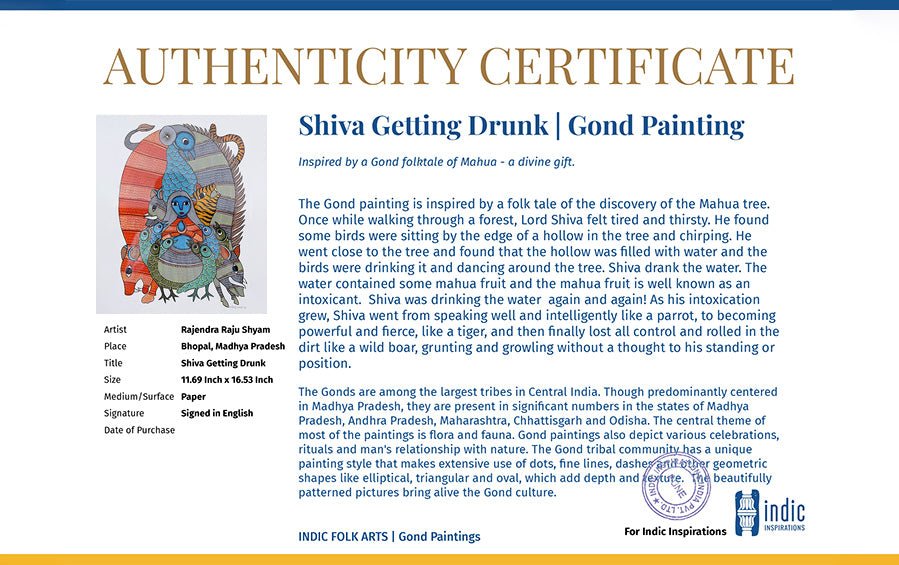Shiva Getting Drunk on Mahua # 1 | Gond Painting | A3 Frame
Shiva Getting Drunk | Gond Painting | A3 Frame is a framed A3 size Gond painting is inspired by a Gond folk tale of the discovery of the Mahua tree.
Once while walking through a forest, Lord Shiva, the God of Destruction, felt tired and thirsty. He was searching for water. Suddenly he found some birds were sitting by the edge of a hollow in the tree and chirping. He went close to the tree and found that the hollow was filled with water and the birds were drinking it and was dancing around the tree. Shiva settled himself under the shade of the Mahua tree and drank the water. In no time he drifted into a state of joy.
The water contained some over-ripe mahua fruit and the mahua fruit is well known as an intoxicant and medicinal properties. So the water tasted delicious – cool and sweet and scented by the mahua fruit, and soon Shiva was drinking from it again and again!
As his intoxication grew, Shiva went from speaking well and intelligently like a parrot, to becoming powerful and fierce, like a tiger, and then finally lost all control and rolled in the dirt like a wild boar, grunting and growling without a thought to his standing or position.
Since then, Gonds produce Mahua water. Mahua fruits have a lot of ethnic values among the tribal people. It is regarded as a divine gift and an essential ingredient of any ritual and also a herbal medicine for many diseases.
It is an interesting tale about the discovery of the benefits of the Mahua tree as well as the potential hazard of intoxication by Mahua fruits.
This story is depicted with the Lord Shiva, a Mahua tree and three forms of wild animals - parrots, the tiger and the wild boar. The rhythmic lines, the striking colors, the exquisite detailing of patterns on the figures make this piece truly.
Features:
- Size: 11.69 Inch x 16.53 Inch
- Price is for framed painting.
- Handpainted in Gond Art style on paper.
- Painted with Acrylic colours and permanent ink to fill in painting.
- A traditional tribal art made by dashes and dot.
- Used to worship nature and as a mode for seeking protection and warding off evil.
- Brass chain at the back to hang the framed painting on the wall and to make sure it stays on the wall for years to come
- Artist: Rajendra Raju Shyam
Art History - The Gonds are among the largest tribes in Central India. Though predominantly centered in Madhya Pradesh, they are present in significant numbers in the states of Madhya Pradesh, Andhra Pradesh, Maharashtra, Chhattisgarh and Odisha. They paint their walls with vibrant depictions of local flora, fauna and gods. The Gond tribe believed " viewing a good image begets good luck". The central theme of most of the paintings is flora and fauna. Gond paintings also depict various celebrations, rituals and man's relationship with nature.
The Gond tribal community has a unique painting style that makes extensive use of dots, fine lines, dashes and other geometric shapes like elliptical, triangular and oval, which add depth and texture. The Gond painters are traditionally known for filling the surface of the subjects of their paintings with some unique motifs. The forms, shapes, and sizes of the motifs of their paintings are highly influenced by nature, beliefs, folklore, culture and traditions of the community. These paintings are borderless and are based on the elaboration of the dots. The beautifully patterned pictures bring alive the Gond culture.
This painting is the original work of renowned Gond artist, Rajendra Raju Shyam. The painting is signed by the artist. Listen to the audio recording of the artist himself describig the story behind his painting.
